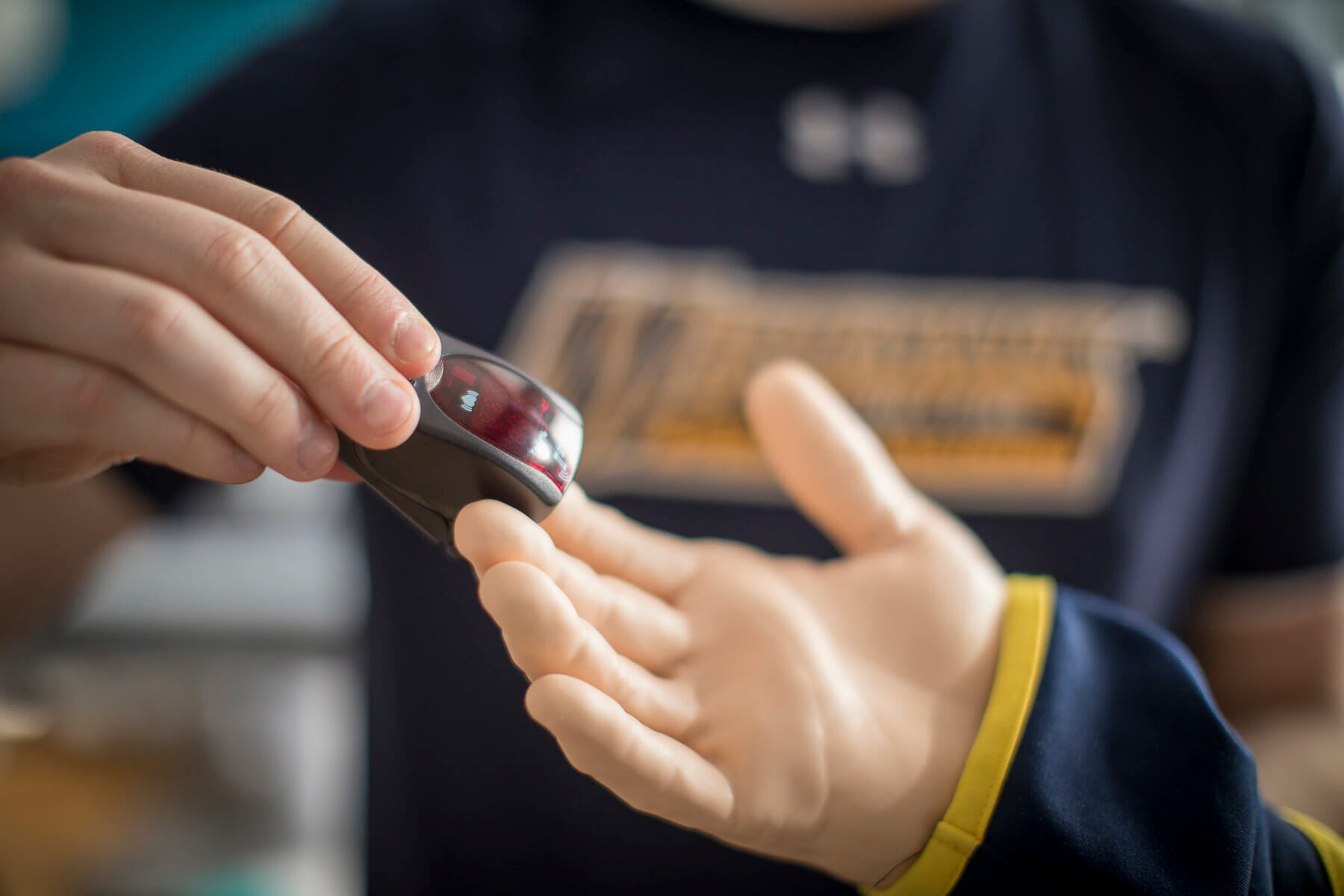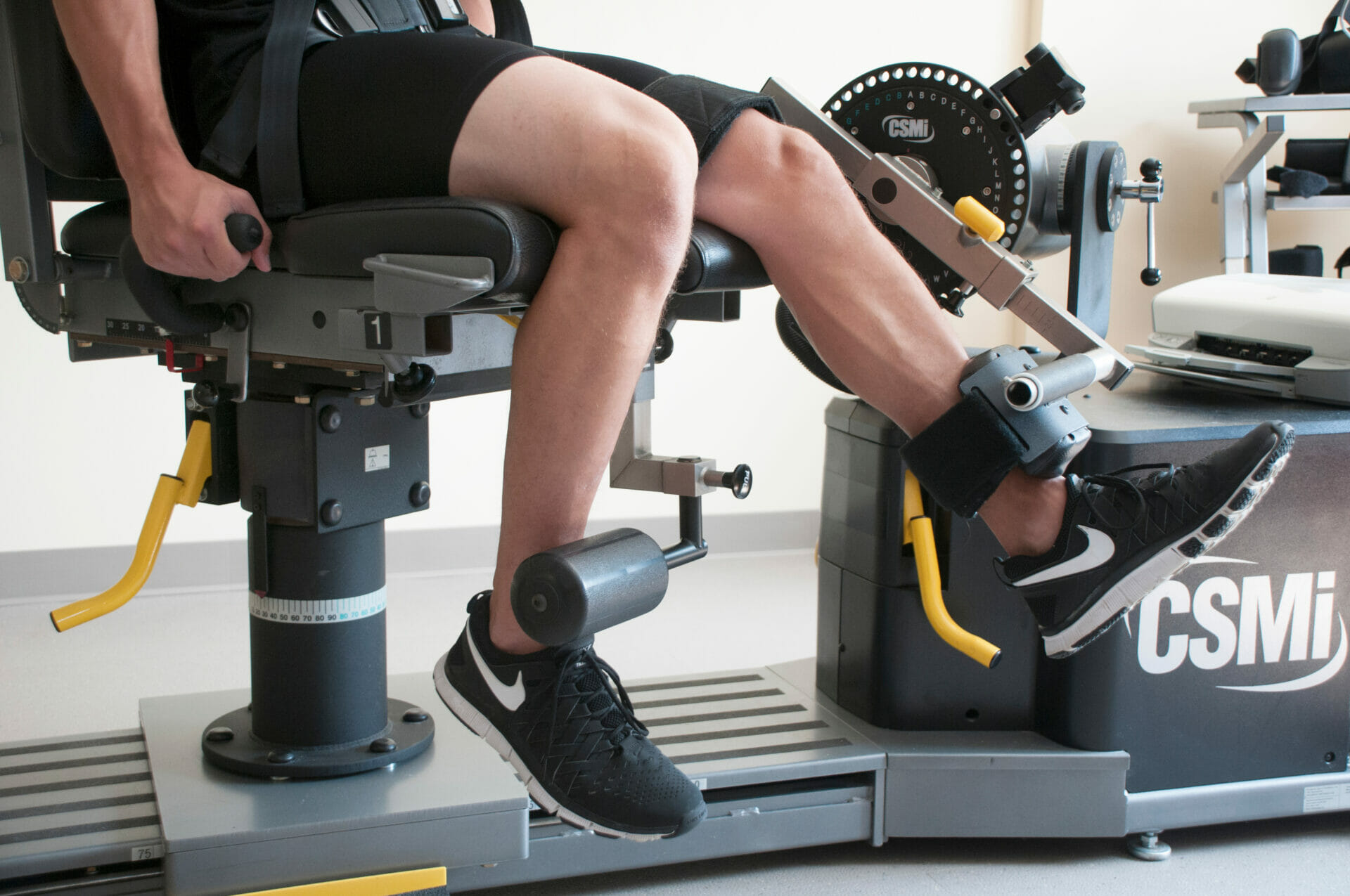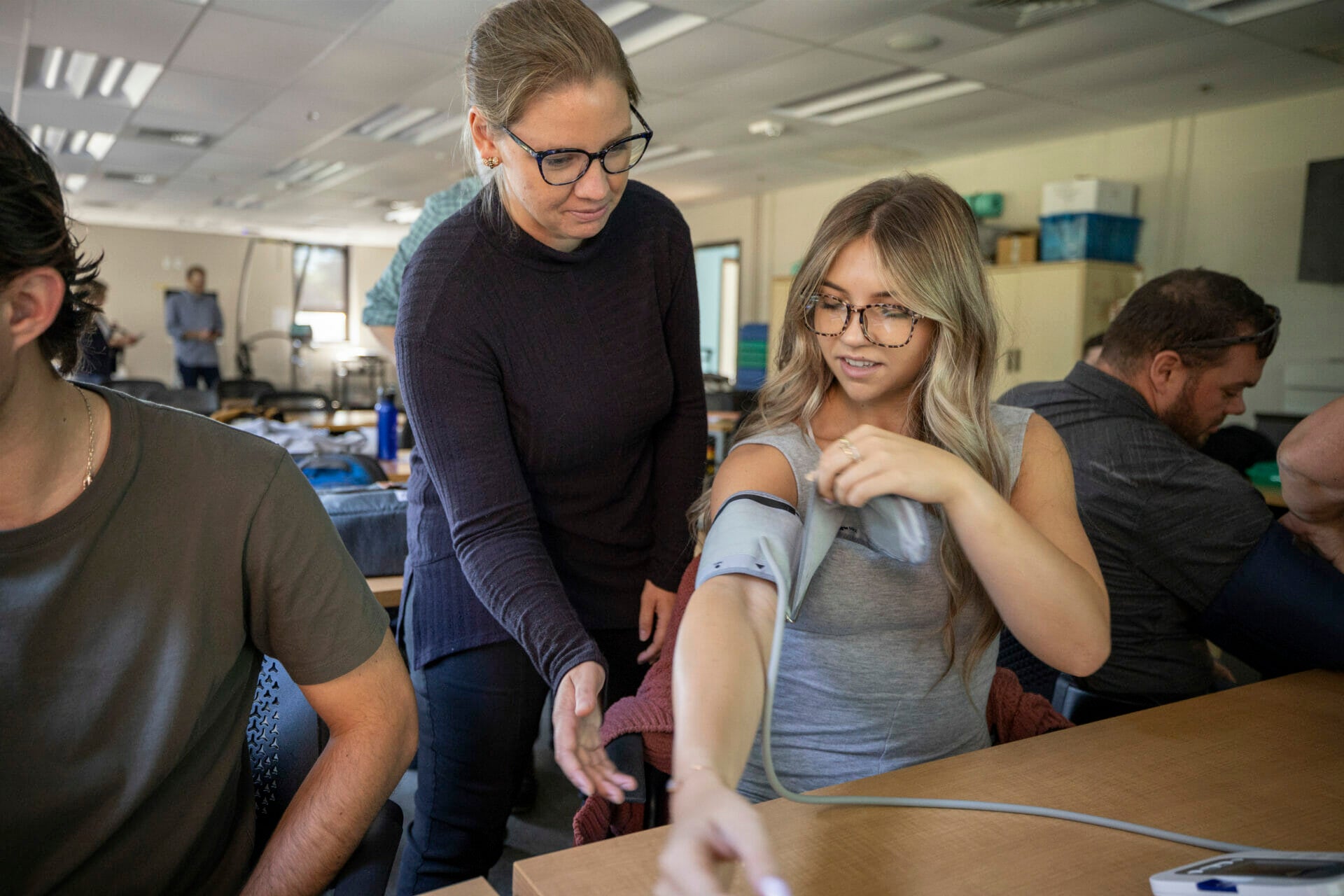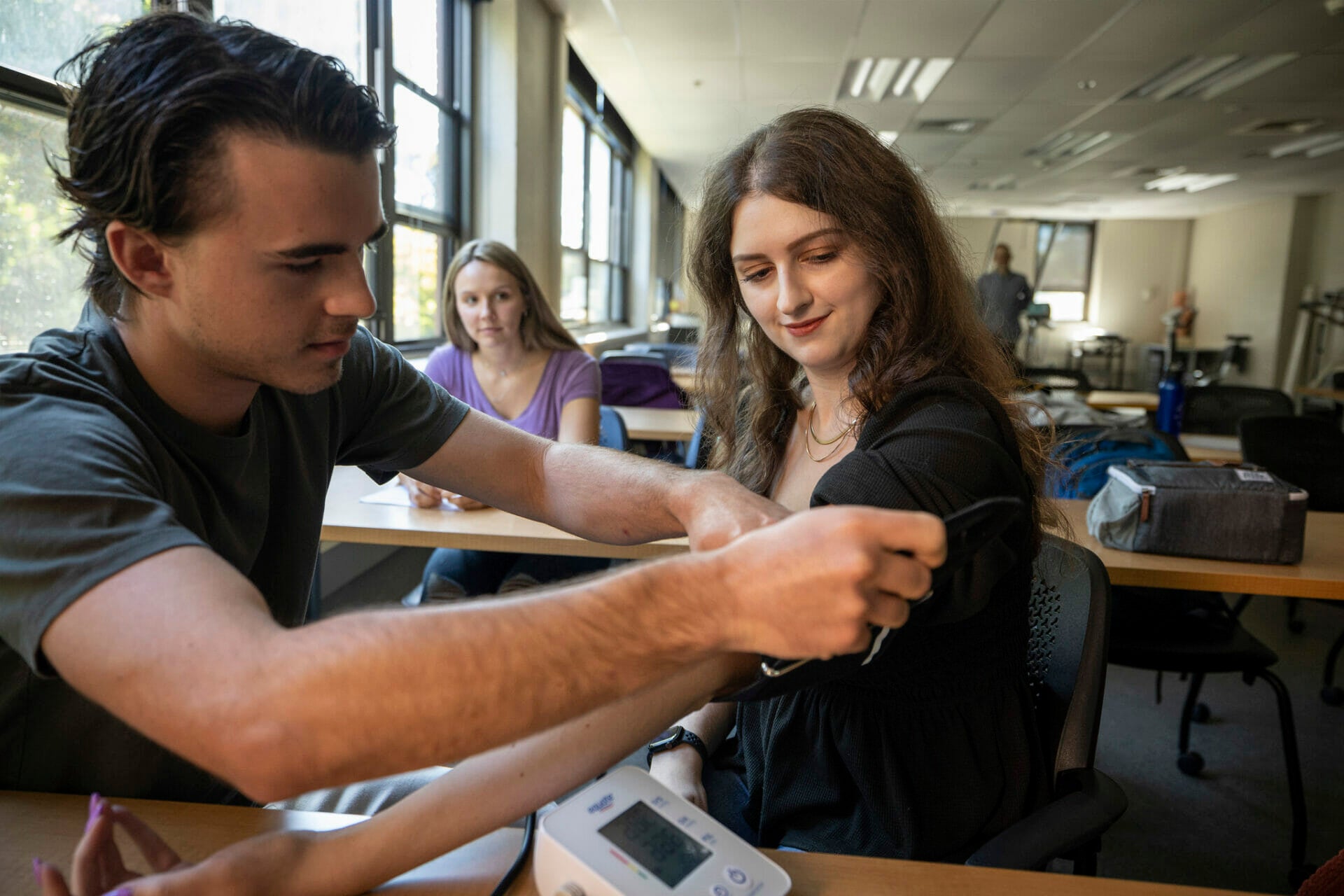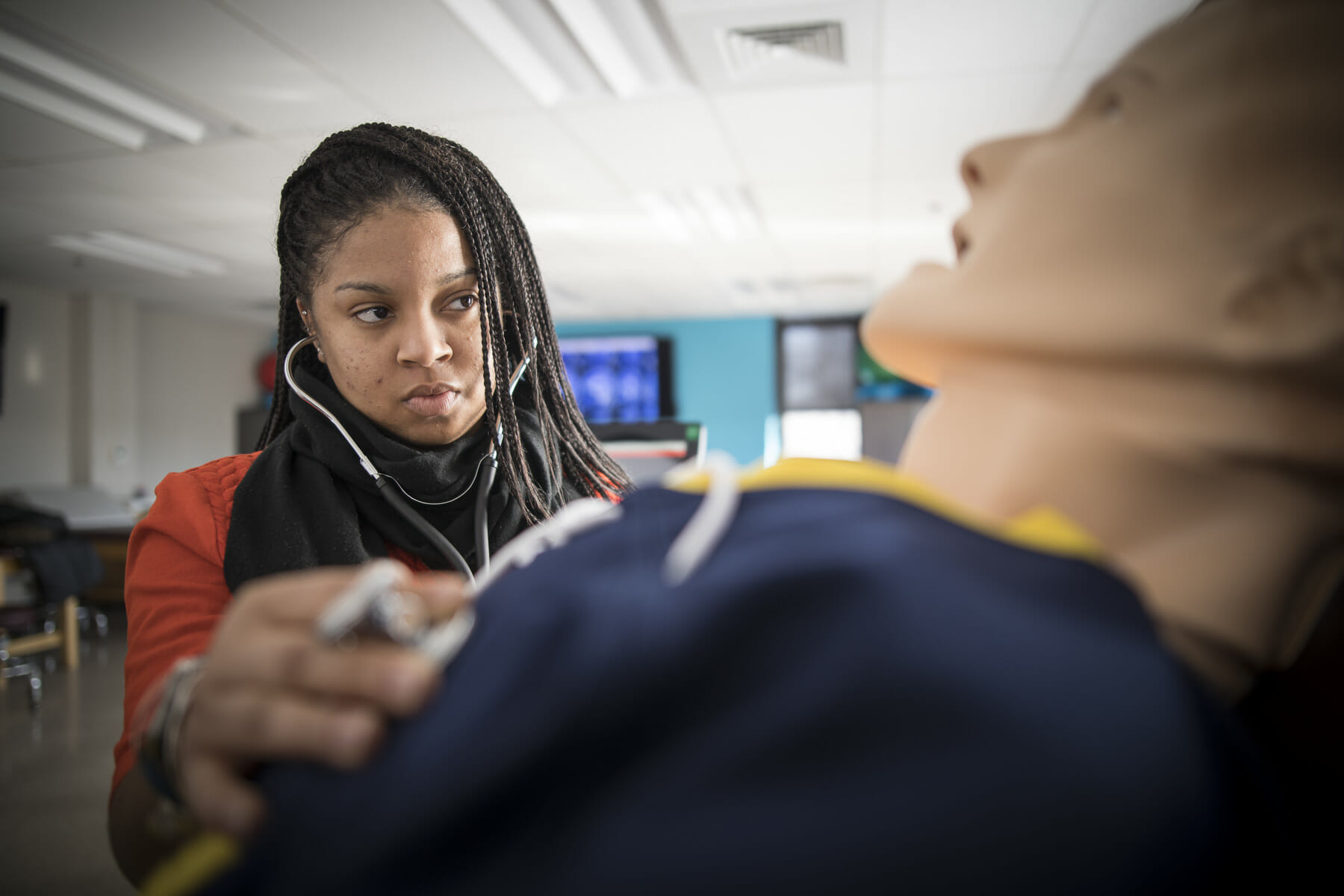Bachelor of Science (B.S.) in Nursing
Our first time NCLEX pass rate is 92.5% for the Class of 2024, with a 100% overall pass rate.
Merrimack College’s nursing program, accredited by CCNE, is all about equipping you with cutting-edge, evidence-based skills for the real world. Dive into hands-on clinical experiences and dynamic coursework, all in our high-tech Nursing Center. Get ready to make a difference!
Nursing Degree at a Glance
Program Type
Major
Mode of Study
On Campus
Clinicals
Guaranteed
Est. Time
4 Years
Start Terms
Fall, Spring
Cost
School
Accreditation
Tell Me More About Merrimack's Nursing Major
"*" indicates required fields

Spring Open House
Tuesday, April 22, 2025
from 1:00 pm
to 4:00 pm
At our Spring Open House, you'll attend academic breakout sessions, connect with members of our community, and take a tour of our beautiful New England campus.
The Nursing Major
Kickstart your nursing journey at Merrimack! Learn from experienced faculty in engaging classes that will empower you to make an impact in the world.
What You'll Study
At Merrimack, our nursing students will study a variety of subjects to prepare for future careers. Majoring in nursing, you’ll learn to think critically in fast-paced health care environments, adapt to rapidly changing health care settings, and provide compassionate, interprofessional health care to diverse individuals. Key areas of study include:
Pediatric Nursing
Medical-Surgical Nursing
Public Health
Pharmacology
Critical Care
Disease Prevention
Mental Health
Ethics in Nursing
Skills You'll Learn
We are empowering future nurses to make waves in healthcare! Our nursing program focuses on preparing you to be a highly experienced, well-rounded and compassionate caregiver. Level up your skills with the bachelor of science major nursing, including:
Patient Assessment
Cultural Competence
Critical Thinking
Simulation Integration
Medication Administration
Time Management
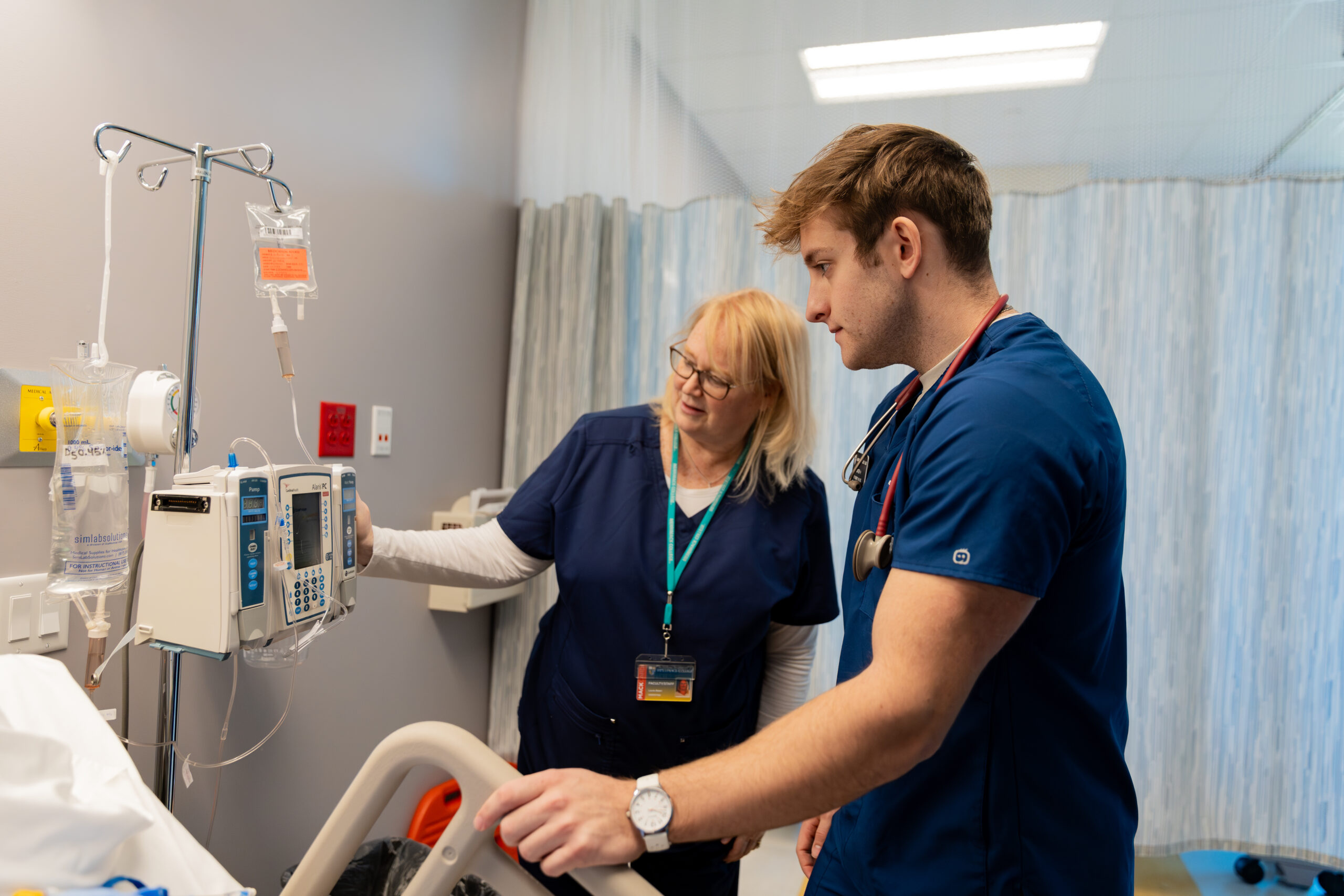
Cutting-Edge Technology
Apply your knowledge and enhance your skills using innovative technology in Merrimack’s modern labs and new Nursing Center. As part of your nursing major requirements, you will clock more than 750 clinical/lab and simulation hours using cutting-edge technology, including:
SIM Labs & SIM Integration in All Nursing Courses
iPads in the Classroom
SIM Manikins
Individual Student Electronic Health Records
State-of-the-art Laboratory Equipment
Medication Administration Systems
Nursing Courses You'll Take
PEDIATRIC
NURSING
NUR 3500
This course applies a family-centered care approach and knowledge of growth and development of health issues of children to assess, plan, implement, and evaluate nursing care for neonates, infants, children, adolescents, and young adults.
MENTAL HEALTH
NURSING CARE
NUR 3655
This course focuses on the major mental health diagnoses and the role of the nurse in the acute psychiatric care setting. Students will apply knowledge about the nurse-patient relationship, therapeutic communication, and trauma informed care.
CRITICAL CARE
NURSING
NUR 4000
During this course, students will critically think and clinically reason through critical care diagnoses while using the nursing process to plan care for the critically ill adult. This includes use of the nursing process in caring for patients with acute care diagnoses.
See All Courses & Options Available to Nursing Majors
Nursing Major Requirements
General Education Requirements
In addition to the major requirements below, you will also need to complete Merrimack’s general education requirements. To see more details about the major, please visit catalog.merrimack.edu.Nursing, B.S.
Minimum number of credits required to graduate: 124
Minimum cumulative GPA required to graduate: 2.75
Minimum number of credits to complete the major: 68 Nursing credits, 16 non-Nursing credits (total of 84 credits for the major)
School: School of Nursing and Health Sciences
Department: Nursing
The Bachelor of Science degree in Nursing at Merrimack College is for students without an educational background in nursing. Its mission is to develop caring, professional, and exceptional nurse graduates who provide evidence-based, safe, high quality, holistic, ethical and equitable healthcare. Aligning with the College's Augustinian values, our focus is to prepare lifelong learners who serve as collaborative leaders in healthcare.The program fosters lifelong learning and a spirit of inquiry. It is focused on hands-on learning opportunities that give students the experience needed to become safe, compassionate caregivers and leaders in today's growing market for the nursing profession. Nursing graduates can pursue careers in a variety of settings, including hospitals, acute care centers, ambulatory and outpatient clinics, community and public health services, as well as skilled nursing facilities. Graduates will also be eligible to work in specialized fields of nursing, such as neonatal or intensive care, telemetry, psychiatric, labor and delivery, pediatrics or emergency medicine. Upon successful completion of the program, graduates will be eligible to sit for the National Council Licensure Exam (NCLEX) and will be prepared to function as a nurse generalist for beginning their professional nursing career.
The baccalaureate degree program in nursing at Merrimack College is accredited by the Commission on Collegiate Nursing Education (http://www.ccneaccreditation.org).
Course Requirements
A Bachelor of Science degree in Nursing is awarded to students who complete four years of academic study on campus (a minimum of 124 credits and completion of all course requirements). This includes 68 NUR nursing major credits, 16 non-NUR nursing major credits, and 40 other required credits. The nineteen core courses required in this major are outlined below. Note: Additional General Education requirements that are specific to Nursing majors can be found in the Nursing Student Handbook linked in the Requirements for the B.S. in Nursing section below.
- NUR 1550 - Introduction to Professional Nursing
- NUR 2000 - Nursing Fundamentals and Health Assessment
- NUR 2550 - Care Considerations for the Older Adult with Chronic Conditions
- NUR 2600 - Pathopharmacology I
- NUR 3000 - Medical Surgical Nursing
- NUR 3050 - Pathopharmacology II
- NUR 3500 - Pediatric Nursing
- NUR 3550 - Obstetrical and Newborn Nursing
- NUR 3600 - Community and Public Health Nursing
- NUR 3655 - Mental Health Nursing Care
- NUR 3700 - Nursing Research and Evidenced Based Research
- NUR 4000 - Critical Care Nursing
- NUR 4050 - Role Transition
- NUR 4500 - Capstone Synthesis
- NUR 4550 - Capstone Preceptorship
- CHM 2037 - Nursing Biochemistry
- HSC 1122 - Anatomy and Physiology I with Integrated Lab
- HSC 1123 - Anatomy and Physiology II with Integrated Lab
- HSC 3320 - Microbiology for Health Professions
Nursing Program Outcomes
Upon completion of the nursing program, students will:
- Engage in socially valued work and health care leadership through the acquisition of a liberal arts education with a focus on the arts and sciences that fosters the basis for clinical reasoning. (Liberal Education (LE))
- Promote and deliver high quality patient care through the application of organizational and systems-based practices and quality improvement outcomes. (Systems-Based Practice (SBP), Quality Improvement (QI))
- Demonstrate effective use of strategies to mitigate errors and reduce the risk of harm to patients, self and others in healthcare, home, and community settings. (Safety (S))
- Apply evidence-based practice models to provide a process for the evaluation and application of scientific evidence surrounding practice issues. (Evidence Based Practice (EBP))
- Utilize informatics and patient care technology to assist in effective communication and to deliver quality patient care in a variety of health care settings. (Informatics & Technology (I & T))
- Integrate leadership and management skills, theories and principles when directing and influencing the behavior of individuals and/or groups to meet desired patient-related outcomes. (Leadership (L))
- Assimilate integrity and accountability into practice that promotes life-long learning and upholds established regulatory, legal and ethical principles while providing standard-based care. (Professionalism (Pro))
- Collaborate with all members of the health care team to provide quality improvement approaches for patient centered outcomes. (Teamwork and Collaboration (T/C))
- Analyze major determinants to health promotion, disease and injury prevention across the lifespan at the individual and population levels. (Health Promotion / Disease Prevention (HP/DP))
- Use verbal and nonverbal communication strategies that promote an effective exchange of information, development of therapeutic relationships and shared decision making with patients, families, groups, populations, and communities from diverse backgrounds. (Communication (Com))
- Utilize and apply knowledge, critical thinking and clinical decision-making skills, within the context of compassionate patient centered care to form the basis for evidence-based nursing practice that reflects ethical values and a commitment to lifelong learning. (Patient Centered Care (PCC))
Additional information on admission and progression requirements for the nursing program can be found in the Nursing Student Handbook
Requirements for the B.S. in Nursing
Admission Requirements for the B.S. in Nursing:
- Official copies of all secondary school transcripts, including first term senior grades
- Satisfactory evidence of secondary school graduation or its equivalent will be required by all candidates.
- Letter of recommendation from a school counselor and from a teacher (preferably a science or math teacher).
- High school subject requirements (expressed in terms of secondary units where 1 unit = 1 academic year of study)
- English, 4
- History, Government and Social Sciences, 2-3
- Mathematics, 4
- Science (with lab), 3
- Foreign Language, 2-4
- High School GPA of 3.0 or higher; C or better in all science grades
The most competitive students will:
- Have taken Biology, Chemistry, and/or Anatomy and Physiology in high school;
- Received a B or higher in all math and sciences courses;
- Have a compelling recommendation from a math or science instructor and school counselor/administrator; and
- Have completed community service or other activities that demonstrate commitment, compassion, and leadership.
Nursing Good Moral Character Statement:
All prospective nursing students should familiarize themselves with the statutory requirements of licensure in the Commonwealth of Massachusetts prior to matriculation in the nursing program. The Commonwealth of Massachusetts Board of Registration in Nursing Licensure Policy 00-01, Determination of Good Moral Character includes the following:
- It identifies specific criminal convictions, which will permanently exclude an individual from initial nurse licensure in Massachusetts, due to the horrific nature of the crime;
- Requires initial nurse licensure applicants to be conviction-free, for a minimum of five years, before the submission of an application for licensure;
- Requires the disposition of any criminal conviction to be closed, for a minimum of one year, before the submission of a nurse licensure application; and
- Requires all criminal cases to be closed at the time of application.
The Massachusetts Board of Registration in Nursing publishes an information sheet on good moral character. Copies are available on-line at: http://www.mass.gov/eohhs/docs/dph/quality/boards/good-moral-info.pdf.
Note Regarding Applying for Licensure
Prospective nursing students who intend to apply for licensure in states other than Massachusetts are encouraged to contact the appropriate authority in those states to ensure that they will meet the requirements for licensure application in those states. Please contact the Undergraduate Nursing Program Director for any questions about this policy and how it may affect your ability to be licensed as a registered nurse in Massachusetts.
For all other Nursing Major Requirements and Policies, please refer to the Merrimack College Nursing Student Handbook on this page of the website: https://www.merrimack.edu/academics/health-sciences/majors/nursing/nursing-major/.
Transferring in to the B.S. in Nursing
Internal Applicants:
Change of major applicants for a Bachelor of Science in Nursing degree will pertain to matriculated freshman only. Vetting for acceptance into the Nursing program will be done through the Undergraduate Director of Nursing. Slots are limited and are not guaranteed. Only a select number of students may be granted or none at all, depending on availability.
In order to apply to the Nursing program as a current Merrimack College freshman, minimum qualifications include the following:
- Achieve a grade of "B" or higher in all science courses
- Minimum cumulative grade point average (CGPA) of 3.3
- Minimum score of 80, as per grading rubric, on submitted essay
- Minimum score of 80 on interview as per the nursing transfer interview rubric
- Official transcript required
- Prerequisite Courses: Human Anatomy and Physiology I and II, Human Development
Other requirements include:
A. An essay submitted to the Undergraduate Director of Nursing that discusses:
- Your reasons for wanting to pursue a nursing career.
- Your individual skills and strengths as well as foreseen challenges that you might have to overcome to be successful in the nursing program.
B. An interview with the Undergraduate Director of Nursing
External Applicants:
Students from outside Merrimack College will not be allowed to transfer into the Bachelor of Science in Nursing degree program.
Sample Four-Year Schedule - Curriculum Guide
Wondering when you’ll take certain courses? Use the Curriculum Guide – a sample four-year schedule – to get a sense of what your path to graduation looks like. Select your class year to learn more.
Nursing Students In the Classroom & Beyond
At Merrimack, you’ll complement your coursework with experiences like guaranteed internships, co-ops, service learning or faculty-led research projects. As a nursing major, you’ll dive into over 750 hours of hands-on clinical, lab, and simulation experiences, all while using the latest tech to prepare you for the real world.




Career Outlook: Where Can a Nursing Degree Take You?
Nursing major salaries are very competitive and the U.S. Bureau of Labor Statistics says the nursing job outlook is much faster than average.
Career Outcomes Rate
94% of the undergraduate class of 2023 in Nursing & Health Sciences were either employed, participating in voluntary service or continuing their education within nine months of graduation.
Experiential Learning
100% of the undergraduate nursing class of 2023 participated in at least one internship, co-op, clinical, practicum or research opportunity while at Merrimack.
Clinical/Lab/SIM Hours
As a nursing major, you’ll dive into over 750 hours of hands-on clinical, lab, and simulation experiences, all while using the latest tech to prepare you for the real world.
Jobs with a Nursing Degree
Upon completing our program, you’ll be well-equipped to pursue graduate study or a career in nursing and related disciplines. Nursing major jobs are incredibly rewarding, offering you the chance to make a meaningful difference in people’s lives every day while providing a lucrative career path. Positions may include:
- Registered Nurse
- Public Health Nurse
- General Nurse Practitioner
- Neonatal Intensive Care Nurse
- Pain Management Nurse
- Nurse Educator
- Nurse Midwife
- Healthcare Lobbyist
Thinking about graduate studies? This program will prepare you for graduate studies at the master’s and doctoral level to pursue careers such as a nurse practitioner, nurse anesthetist, nurse educator or clinical nurse specialist.
Where Merrimack Nursing Graduates Work & Intern
Newton-Wellesley Hospital
Child Life Specialist
Encompass Health
Registered Nurse
Lowell General Saints Campus
Student Nurse
Massachusetts General Hospital
Oncology Fellow
McLean Hospital
Student Nurse
Spaulding Rehabilitation Hospital
Student Nurse
Brigham and Women's Hospital
Cardiac Surgery Intensive Care Unit
Beth Israel Deaconess Medical Center
Emergency Service Clinician
Beyond the Classroom

Student Life
You’ll have endless opportunities to find your fit, get involved and pursue what makes you happy—all while making lifelong friends (and memories!).
Explore your passions alongside others with similar interests, whether that means a cappella singing or outdoor adventuring.
- 70+ student organizations
- Division I Athletics, club and intramural sports
- Beloved traditions like Homecoming, Block Party and Spring Concert
- Fraternities and sororities

Internships & Co-Ops
Our students gain valuable work experience and connections with leading companies through guaranteed internships and the Warriors at Work co-op program. Recent placements include:
- Interning with Homeland Security Investigations, shadowing special agents
- Interning at Delta Tech-Ops, working in components engineering
- Working as a tax intern at Baker Tilly
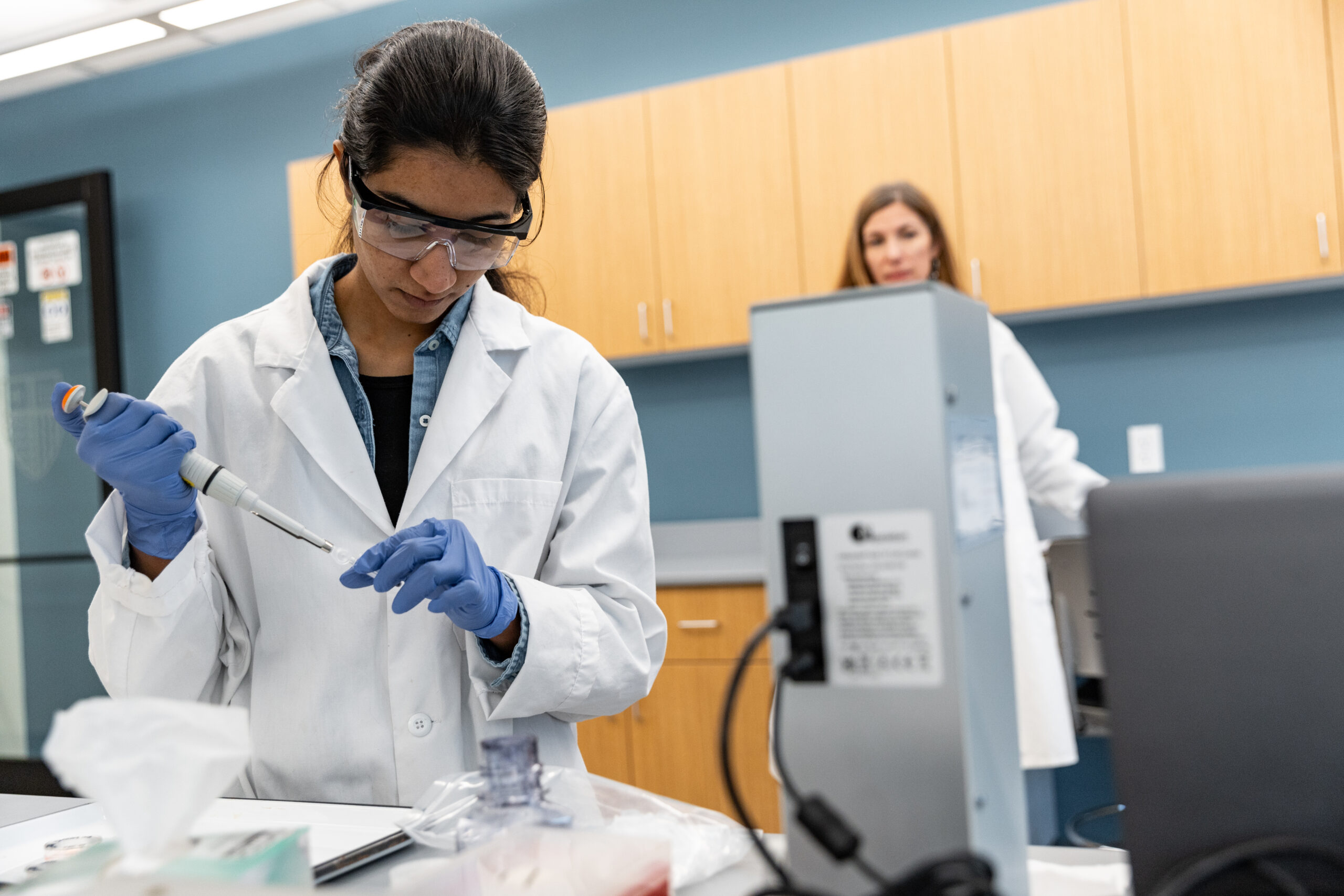
Research with Faculty
With access to cutting-edge tools, undergraduate students can collaborate with faculty on research projects that can lead to presentations and publications.
- Explore the complexities of the human mind in a state-of-the-art psychology lab.
- Understand how inflammation affects immune cell aging in our Shared Instrumentation and Research Facility.
- Build fully functional battle bots for competitions.

Study Abroad
Global Merrimack provides transformative, once-in-a-lifetime experiences.
Our 30+ study abroad programs include semesters abroad, faculty-led trips and international internships.
- Explore and study in the Dominican Republic or Iceland.
- Immerse yourself in cities like Dublin, Madrid or Rome.
- Experience a semester at sea or intern in vibrant cities like London or Paris.

Service Learning
Community and service are at the heart of our Augustinian mission.
Over 1,000 students work together to engage in hands-on service learning projects each year, supporting our communities and those in need.
- Participate in our campus-wide Mack Gives Back volunteer days.
- Spend your winter, spring, or summer break on an immersive SEND trip in the U.S. or abroad, helping those in need.
- Tutor students in nearby school districts.
Nursing Mission, Accreditation & Handbook
Department Vision & Mission
- Our vision is to be a highly reputable and respected nursing department advancing nursing education, research and leadership, which is committed to serving diverse communities.
- Our mission is to develop caring, professional, and exceptional nurse graduates who provide evidence-based, safe, high-quality, holistic, ethical and equitable healthcare. Aligning with the College’s Augustinian values, our focus is to prepare lifelong learners who serve as collaborative leaders in healthcare.
Commission on Collegiate Nursing Education (CCNE) Accreditation
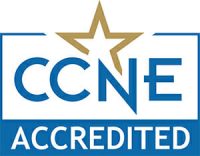
The baccalaureate degree program in nursing at Merrimack College is accredited by the Commission on Collegiate Nursing Education (http://www.ccneaccreditation.
Merrimack College has been granted Full Approval status through the Massachusetts Board of Registration in Nursing for the operation of its Baccalaureate Degree Registered Nurse Program.
NCLEX Pass Rate
In May 2024, 67 nursing students graduated from Merrimack. Our first time NCLEX pass rate is 92.5% for the Class of 2024, with a 100% overall pass rate.
Nursing Application Checklist
- Common Application or Merrimack Application (no fee to apply)
- Official secondary school transcripts
- Secondary School Report (SSR)
See for Yourself
Nursing Students in Action
Nursing Center Virtual Tour
Programs Related to the Nursing Major
Explore other areas and where they can take you.
Take the Next Step (We're Here to Help)
At Merrimack, we are ready to meet you where you are and get you where you want to go. And, we make the process simple along the way!
Upcoming Events

Info Session & Campus Tour
Monday-Friday & Most Saturdays
Attend a 20-minute info session led by an admission counselor and then take a student-led campus tour. Registration is required.
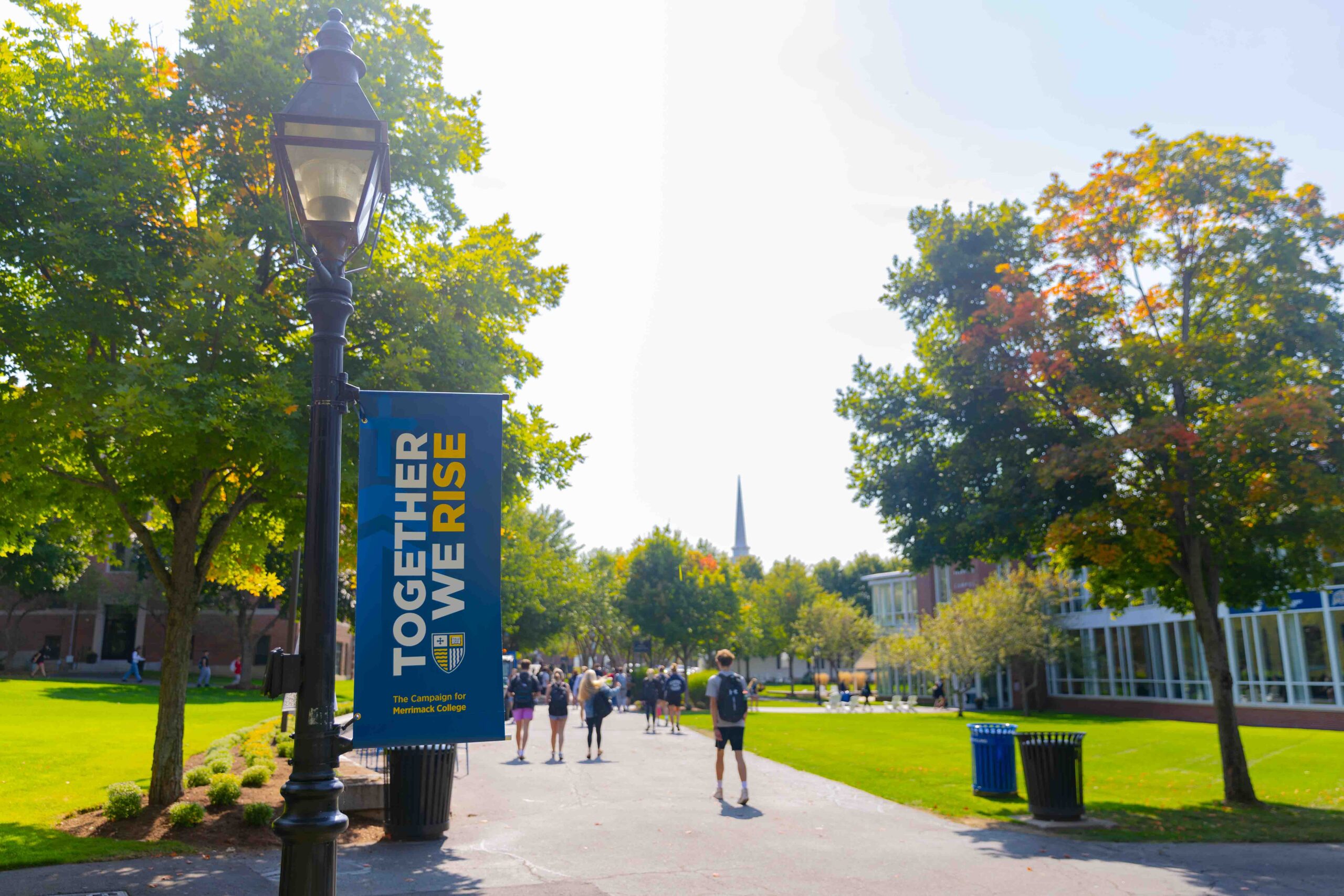
Merrimack College Awards & Recognition
U.S. News & World Report | Best Regional Universities North (2024)
- Most Innovative Schools (#5)
- Regional Universities North (#39)
- Best Undergraduate Teaching (#19)
- Best Colleges for Veterans (#15)
- Best Value Schools (#51)
Tell Me More About Merrimack's Nursing Major
"*" indicates required fields
